J
Jeanh
Guest
12 Facts You May Not Know About the Human Brain
Yuor brian dseno’t raed the ltetres but the wrods. Your brain is so amazing that it isn’t necessary to see the letters in the correct order to understand the words. The human brain, which weighs approximately 3 pounds, is an incredible organ. In spite of scientific advancement, there is still so much we don’t know or understand about the human brain. The things that are known about the brain, however, are truly amazing. The following are 12 facts you may not know about the human brain.
1. The Brain Doesn’t Feel Any Pain

courtesy of: You do not have permission to view the full content of this post. Log in or register now.
Even though the brain does process feelings and sensations that occur throughout the body, the brain itself cannot feel pain. The brain doesn’t even have pain receptors. The pain from headaches comes from pain receptors located in the head but not the brain. That’s why they are called headaches and not brainaches. The coverings around the brain, the coverings on the bones, and parts of the scalp all have receptors that feel pain. Even when surgery is being done on the brain, technically the brain won’t feel any of the pain.
2. Lack of Oxygen can Result in Brain Damage
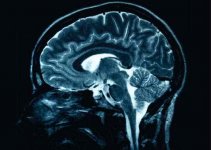
courtesy of: confitdent.com
The brain is truly an amazing organ but it won’t last long without adequate oxygen. A lack of oxygen to the brain for 5 to 10 minutes can result in permanent brain damage. Even after just 1 minute without oxygen brain cells start to die, although survival is still possible. Brain damage can happen just after 3 minutes without enough oxygen. By the time the 10 minute mark has been reached many brain cells have already died and recovery is unlikely.
3. A Brain Virus Can Decrease Intelligence
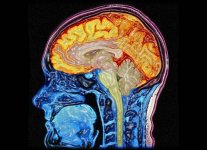
courtesy of: You do not have permission to view the full content of this post. Log in or register now.
Scientists have discovered a virus that attacks human DNA and can actually make people less intelligent. It can impair brain activity, learning, and the memory process. Research done at John Hopkins School of Medicine has found traces of an algal virus in healthy individuals that can lead to mental impairment. This virus was detected by doing a throat swab. The study showed that those infected with this particular virus performed about 10 percent worse on tests that analyzed visual processing speeds. The virus was also associated with lower attention spans.
4. The Brain Produces Enough Electricity to Power a Light Bulb
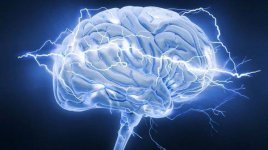
courtesy of: You do not have permission to view the full content of this post. Log in or register now.
When awake, the human brain can produce enough electricity to power a small light bulb. This electric output is equal to approximately 25 to 35 watts. This power comes from the fact that the brain contains approximately 100 billion neurons. These neurons are the pathways for electrical and chemical signals that enable us to laugh, dream, see, move, and simply think. One neuron may not generate much electricity but all of them working at one time produce enough power to light up a light bulb.
5. The Brain is the Fattest Organ in the Human Body
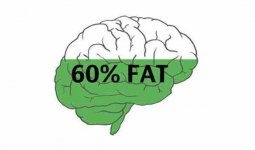
courtesy of: twitter.com
Calling someone a fathead isn’t a very nice thing to say, but it is actually true. Your brain consists of about 60 percent fat. The essential fatty acids that are necessary for your brain and body to function properly are not manufactured by your body. They must come from a healthy variety of food you eat. It’s important to understand that the healthy fats in your brain create all the cell membranes throughout your entire body. If your diet is full of bad fats or even too little fat, your brain will not be able to produce high quality cell membranes.
6. Dieting Could Cause Your Brain to Eat Itself
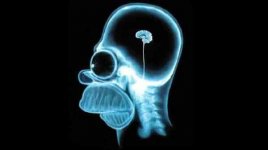
courtesy of: www.YøùTùbé.com
Just like other parts of the body, the brain will actually begin to eat itself to keep from starving. Tests that were conducted on mice have shown that hunger causes a process called autophagy to occur. While this is happening fatty acids cause specific neurons to be produced that intensify hunger signals. This could be one reason the best way to lose weight involves simply eating healthy and exercising. This research could make a person think twice before beginning an extreme diet.
7. You Could Survive on Half a Brain

courtesy of: You do not have permission to view the full content of this post. Log in or register now.
Due to injury or disease, some people have had large portions of their brain removed. It’s even possible to have half of your brain removed by surgery with no apparent effect on memory or personality. There is a documented case of a little girl having half her brain removed to prevent severe seizures from taking place. The brain is so dynamic that it has the ability to adjust even in extreme situations such as this. When part of the brain is removed the part that is left has the ability to relearn many skills that may have been lost. The remaining parts of the brain simply take over the functions that were being completed by the part that is missing.
8. Chocolate Causes Your Brain to Relax

courtesy of: You do not have permission to view the full content of this post. Log in or register now.
Just smelling chocolate can affect theta brain waves. This is turn triggers relaxation. In fact, smelling chocolate affected the brain more so than smelling other types of odors including strawberry, garlic, and onions. The next time you’re stressed you might want to take the time to simply smell the chocolate before indulging. While eating chocolate that has higher cocoa content may provide better health benefits, the positive effects from only smelling the chocolate are the same no matter how much milk it contains.
9. The Brain, ******, and ***
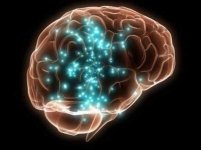
courtesy of: news.yahoo.com
According to research, the section of the brain behind a person’s left eye shuts down during orgasm. The brain then releases so much dopamine during an orgasm that a brain scan resembles that of someone on ******. Some scientists claim that the dopamine released when an orgasm occurs has the equal effect of one shot of ******. Of course dopamine is released in response to a variety of pleasurable activities. It is the hormone that is involved in addiction. Dopamine is the drugs, ***, and rock and roll chemical in the brain. It’s interesting that the research conducted in this area noted that while women may be able to fake orgasm and fool their partner, they can’t fool a brain scan.
10. It’s Good for the Brain to Forget
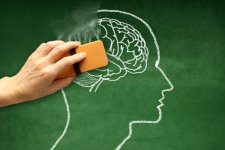
courtesy of: twitter.com
It’s actually good for the brain to forget information. Deleting unnecessary information helps the nervous system retain plasticity. Plasticity refers to the brain’s ability to adapt and change by creating new pathways to organize information and make new connections. It’s good for our daily lives to forget old information and form new connections when learning new information. For example, when you receive a new pin number for a bank card, you memorize the new number and gradually forget the old one. If you remembered the old number in the same way you remembered the new one life could get really confusing.
11. The Brain Reacts to ******* in 6 Minutes
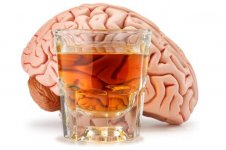
courtesy of: You do not have permission to view the full content of this post. Log in or register now.
The old saying that ******* can quickly go to your head seems to be true and based on science. Brain cells will start reacting to ******* within 6 minutes. The *******, however, doesn’t make you forget anything. If you drink to the point that you blackout, the brain only temporarily loses the ability to create memories. While science has proven many differences between men and women, how ******* affects the brain doesn’t appear to be one of them. The brains of both males and females in the study reacted to the ******* in the same way.
12. The Brain Treats Rejection Like Physical Pain

A man is worried by a rejection printed with a rubber stamp
Researchers have found that rejection, such as what happens after a bad relationship breakup, can activate the same pathways in the brain that process pain. This means that different types of social rejection and pain may overlap in the brain. Studies have even shown that the same areas in the brain are activated when people are shown a picture of their former partners. The interesting conclusion shows that physical and emotional pain is more interconnected than many people may realize.
Yuor brian dseno’t raed the ltetres but the wrods. Your brain is so amazing that it isn’t necessary to see the letters in the correct order to understand the words. The human brain, which weighs approximately 3 pounds, is an incredible organ. In spite of scientific advancement, there is still so much we don’t know or understand about the human brain. The things that are known about the brain, however, are truly amazing. The following are 12 facts you may not know about the human brain.
1. The Brain Doesn’t Feel Any Pain

courtesy of: You do not have permission to view the full content of this post. Log in or register now.
Even though the brain does process feelings and sensations that occur throughout the body, the brain itself cannot feel pain. The brain doesn’t even have pain receptors. The pain from headaches comes from pain receptors located in the head but not the brain. That’s why they are called headaches and not brainaches. The coverings around the brain, the coverings on the bones, and parts of the scalp all have receptors that feel pain. Even when surgery is being done on the brain, technically the brain won’t feel any of the pain.
2. Lack of Oxygen can Result in Brain Damage

courtesy of: confitdent.com
The brain is truly an amazing organ but it won’t last long without adequate oxygen. A lack of oxygen to the brain for 5 to 10 minutes can result in permanent brain damage. Even after just 1 minute without oxygen brain cells start to die, although survival is still possible. Brain damage can happen just after 3 minutes without enough oxygen. By the time the 10 minute mark has been reached many brain cells have already died and recovery is unlikely.
3. A Brain Virus Can Decrease Intelligence

courtesy of: You do not have permission to view the full content of this post. Log in or register now.
Scientists have discovered a virus that attacks human DNA and can actually make people less intelligent. It can impair brain activity, learning, and the memory process. Research done at John Hopkins School of Medicine has found traces of an algal virus in healthy individuals that can lead to mental impairment. This virus was detected by doing a throat swab. The study showed that those infected with this particular virus performed about 10 percent worse on tests that analyzed visual processing speeds. The virus was also associated with lower attention spans.
4. The Brain Produces Enough Electricity to Power a Light Bulb

courtesy of: You do not have permission to view the full content of this post. Log in or register now.
When awake, the human brain can produce enough electricity to power a small light bulb. This electric output is equal to approximately 25 to 35 watts. This power comes from the fact that the brain contains approximately 100 billion neurons. These neurons are the pathways for electrical and chemical signals that enable us to laugh, dream, see, move, and simply think. One neuron may not generate much electricity but all of them working at one time produce enough power to light up a light bulb.
5. The Brain is the Fattest Organ in the Human Body

courtesy of: twitter.com
Calling someone a fathead isn’t a very nice thing to say, but it is actually true. Your brain consists of about 60 percent fat. The essential fatty acids that are necessary for your brain and body to function properly are not manufactured by your body. They must come from a healthy variety of food you eat. It’s important to understand that the healthy fats in your brain create all the cell membranes throughout your entire body. If your diet is full of bad fats or even too little fat, your brain will not be able to produce high quality cell membranes.
6. Dieting Could Cause Your Brain to Eat Itself

courtesy of: www.YøùTùbé.com
Just like other parts of the body, the brain will actually begin to eat itself to keep from starving. Tests that were conducted on mice have shown that hunger causes a process called autophagy to occur. While this is happening fatty acids cause specific neurons to be produced that intensify hunger signals. This could be one reason the best way to lose weight involves simply eating healthy and exercising. This research could make a person think twice before beginning an extreme diet.
7. You Could Survive on Half a Brain

courtesy of: You do not have permission to view the full content of this post. Log in or register now.
Due to injury or disease, some people have had large portions of their brain removed. It’s even possible to have half of your brain removed by surgery with no apparent effect on memory or personality. There is a documented case of a little girl having half her brain removed to prevent severe seizures from taking place. The brain is so dynamic that it has the ability to adjust even in extreme situations such as this. When part of the brain is removed the part that is left has the ability to relearn many skills that may have been lost. The remaining parts of the brain simply take over the functions that were being completed by the part that is missing.
8. Chocolate Causes Your Brain to Relax

courtesy of: You do not have permission to view the full content of this post. Log in or register now.
Just smelling chocolate can affect theta brain waves. This is turn triggers relaxation. In fact, smelling chocolate affected the brain more so than smelling other types of odors including strawberry, garlic, and onions. The next time you’re stressed you might want to take the time to simply smell the chocolate before indulging. While eating chocolate that has higher cocoa content may provide better health benefits, the positive effects from only smelling the chocolate are the same no matter how much milk it contains.
9. The Brain, ******, and ***

courtesy of: news.yahoo.com
According to research, the section of the brain behind a person’s left eye shuts down during orgasm. The brain then releases so much dopamine during an orgasm that a brain scan resembles that of someone on ******. Some scientists claim that the dopamine released when an orgasm occurs has the equal effect of one shot of ******. Of course dopamine is released in response to a variety of pleasurable activities. It is the hormone that is involved in addiction. Dopamine is the drugs, ***, and rock and roll chemical in the brain. It’s interesting that the research conducted in this area noted that while women may be able to fake orgasm and fool their partner, they can’t fool a brain scan.
10. It’s Good for the Brain to Forget

courtesy of: twitter.com
It’s actually good for the brain to forget information. Deleting unnecessary information helps the nervous system retain plasticity. Plasticity refers to the brain’s ability to adapt and change by creating new pathways to organize information and make new connections. It’s good for our daily lives to forget old information and form new connections when learning new information. For example, when you receive a new pin number for a bank card, you memorize the new number and gradually forget the old one. If you remembered the old number in the same way you remembered the new one life could get really confusing.
11. The Brain Reacts to ******* in 6 Minutes

courtesy of: You do not have permission to view the full content of this post. Log in or register now.
The old saying that ******* can quickly go to your head seems to be true and based on science. Brain cells will start reacting to ******* within 6 minutes. The *******, however, doesn’t make you forget anything. If you drink to the point that you blackout, the brain only temporarily loses the ability to create memories. While science has proven many differences between men and women, how ******* affects the brain doesn’t appear to be one of them. The brains of both males and females in the study reacted to the ******* in the same way.
12. The Brain Treats Rejection Like Physical Pain

A man is worried by a rejection printed with a rubber stamp
Researchers have found that rejection, such as what happens after a bad relationship breakup, can activate the same pathways in the brain that process pain. This means that different types of social rejection and pain may overlap in the brain. Studies have even shown that the same areas in the brain are activated when people are shown a picture of their former partners. The interesting conclusion shows that physical and emotional pain is more interconnected than many people may realize.
Attachments
-
You do not have permission to view the full content of this post. Log in or register now.